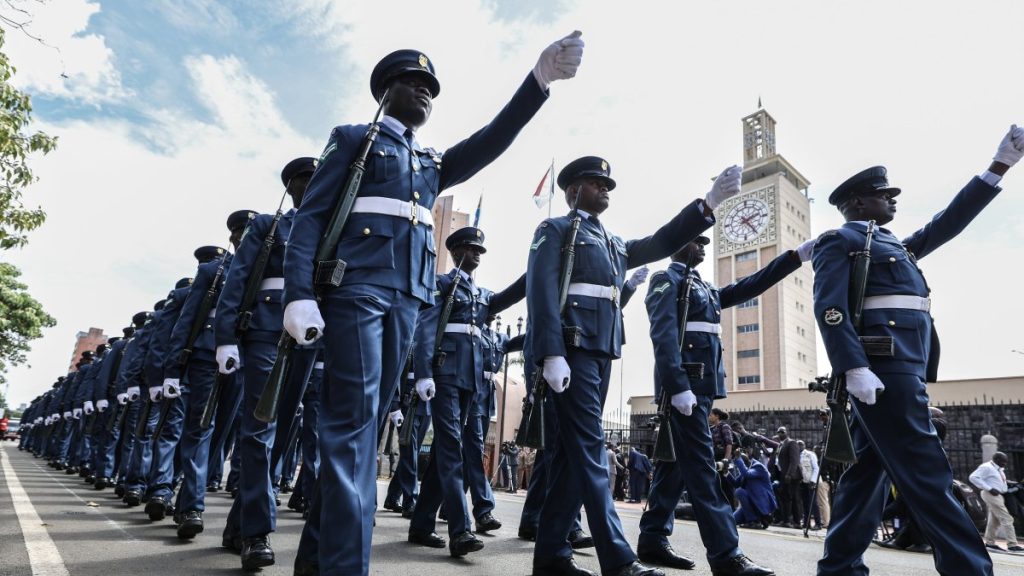Kenya celebrates the 61st anniversary of its independence on Dec. 12 and marks 60 years of its diplomatic journey. The struggle for Kenya’s independence from over six decades of colonial rule was multifaceted in nature, deploying protests, armed struggle and negotiations, and it was comprised of equal measure. In joining the community of nations as an independent state, the founding father, Mzee Jomo Kenyatta, summed up the aspirations of the new nation as a struggle against poverty, disease and ignorance.
Kenya has transformed significantly in its 61 years of existence as a sovereign state. With a population of 56.4 million, Kenya is today the most advanced economy in East and Central Africa and the seventh largest economy in Africa. Its strategic location as a gateway to the East and Central African region provides access to the huge markets within the East African Community (over 300 million people) and the Common Market of Eastern and Southern Africa (over 640 million people). It has a skilled and educated talent pool and a growing middle class, and it offers political stability and a favorable investment policy.
Under its Vision 2030 economic blueprint, Kenya aspires to be an “industrializing, middle-income country providing a high quality of life to all its citizens in a clean and secure environment.” In furtherance of this goal, the government of H.E. President William Ruto has focused on empowering the people economically through the Bottom-up Economic Transformation Agenda (BETA). This approach entails job creation, supporting small businesses and reducing the cost of living, emphasizing agriculture, a micro, small and medium enterprises (MSMEs) economy, housing and settlement, health care, the digital superhighway and the creative economy.
Kenya-Türkiye partnership
Türkiye is one of Kenya’s key partners today. This partnership transcends a variety of sectors, including trade, agriculture, health, energy, education and defense. The volume of trade between the two countries has been growing, and the objective is to reach $1 million, as agreed upon by our leaders. Several companies from Türkiye have, over the years, made successful investments in Kenya and Turkish development agencies and nongovernmental organizations (NGOs), including the Turkish International Cooperation and Coordination Agency (TIKA), the Red Crescent, Anadolu Agency (AA), the Diyanet Foundation and the Hayrat Foundation operate in various parts of Kenya focusing on health, sanitation, water, education and humanitarian work. Various organizations support Kenyan students in the higher education sector through scholarship programs. Besides, Kenyan experts have gained immensely from capacity-development programs in security, agriculture, education and health conducted by various ministries and agencies of the Republic of Türkiye.
As a demonstration of our determination to enhance our cooperation, last year, Kenya concluded the Defence Industries Cooperation Agreement (DICA) with the Presidency of the Turkish Defense Industries. There is substantial progress toward finalizing the other pending agreements in various sectors.
Türkiye continues to attract Kenyan businesspeople as well as medical tourists and the number of Kenyan students pursuing higher education in the country under different arrangements continues to grow. Overall, people-to-people interactions between the people of Kenya and Türkiye continue to flourish.
Kenya’s diplomatic journey
Over the last 60 years of its diplomatic journey, Kenya has contributed immensely toward regional and international affairs through mediation, conflict resolution, peacekeeping, humanitarian missions and responses to pandemics. We have deployed these capabilities in Africa and other regions beset by intra-state conflicts, violent extremism and illegal movement of small arms, among other challenges, to achieve lasting peace and security. On Oct. 2, 2023, the United Nations Security Council (UNSC) adopted resolution 2699 (2023) authorizing the deployment of a Multinational Security Support (MSS) mission headed by Kenya to help combat violence, criminal activities, human rights abuses, violations undermining peace, stability and security of Haiti and the region.
As the host of the United Nations Environmental Programme (UNEP) headquarters, Kenya has played a pivotal role in mitigating the existential challenges of climate change. It has developed a comprehensive climate change policy framework and established institutions to drive its implementation. It has applied several innovative climate change solutions, including renewable energy projects (geothermal, wind, and solar power), reforestation programs, and water conservation initiatives. About 90% of the energy generated in Kenya is from renewable energy sources.
Kenya is actively involved in regional and international climate change initiatives. As Chair of the Committee of African Heads of State and Government on Climate Change (CAHOSCC), H.E. President William Ruto has emerged as a solid and respected voice of climate action. Under his leadership, Kenya has embarked on a 10-year, 15 billion tree-planting program across the country.
Kenya and Türkiye share a solid commitment to international peace and security. In the Horn of Africa region, where incessant conflict has created an opportunity for terrorism and violent extremism to thrive, Türkiye has supported initiatives by regional states and organizations toward peace and stability. We applaud Türkiye’s current efforts to mediate an amicable solution between the Federal Democratic Republic of Ethiopia and the Federation Republic of Somalia and the cessation of war in Sudan.
Türkiye has also been at the forefront in calling for the repurposing of multilateral institutions, particularly its advocacy for reforms at the UNSC. H.E. President Recep Tayyip Erdoğan’s “The world is bigger than five” is a powerful clarion call for a rethink of the global governance architecture. It is timely in a world undergoing unprecedented challenges, including the resurgence of geopolitical rivalries, inter-state conflicts, civil wars, transnational crimes, terrorism and violent extremism, pandemics and climate change. This call resonates well with Kenya’s position and quest for a fair and just world order throughout its 60-year diplomatic journey.


